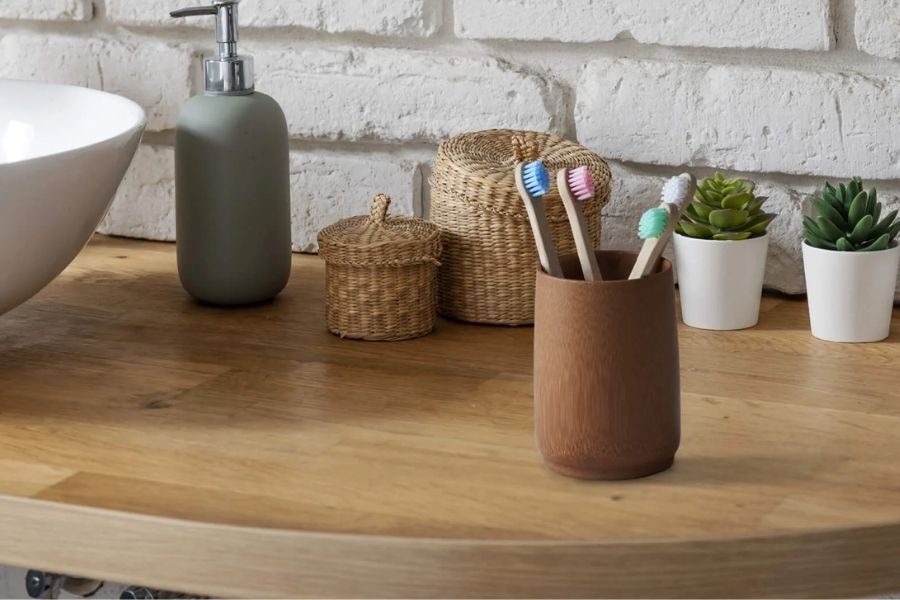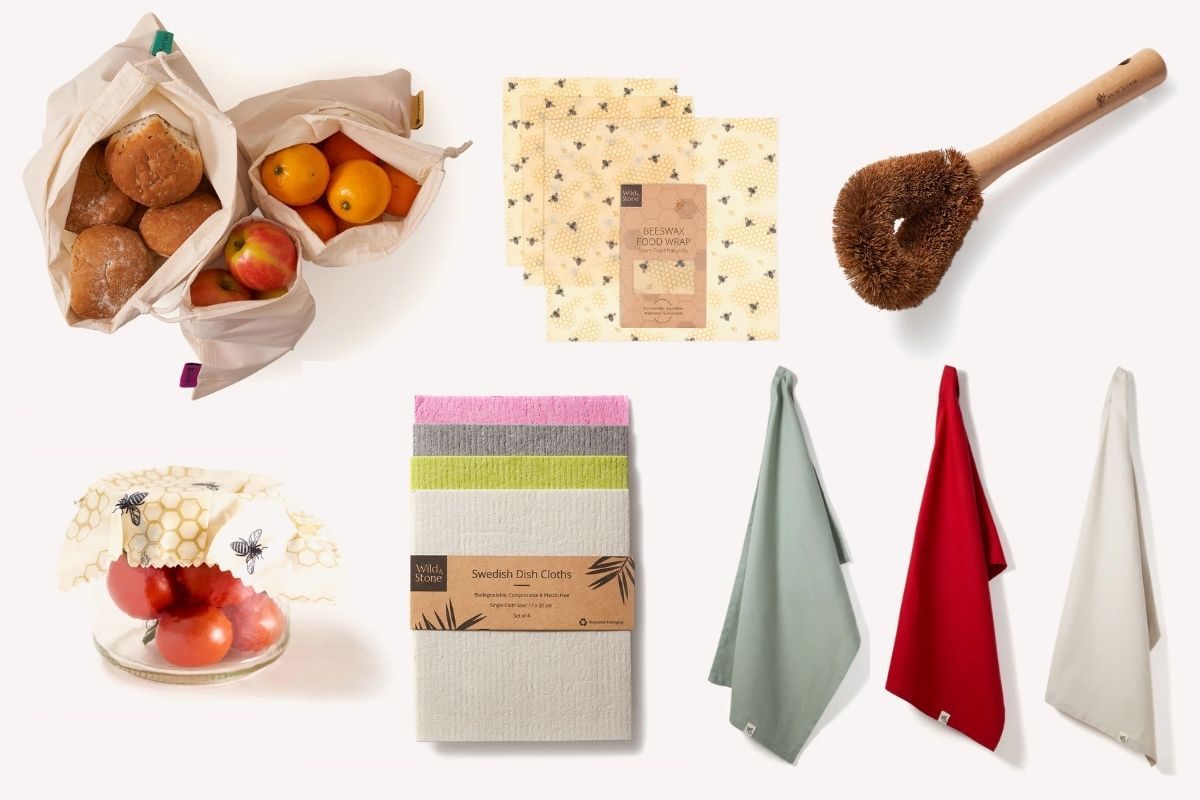Your Cart is Empty
INFO

6 Tips For A More Sustainable Christmas
November 18, 2021 5 min read
Are you feeling a little overwhelmed at the idea of having a sustainable Christmas? Maybe a little anxious that it won't be as fun? Having an eco-friendly Christmas is easier than you think, and just making a few tweaks to your usual Christmas routine can positively impact the planet while allowing you to still celebrate the festive time to the fullest.
Here are our top tips for having a Christmas that's both fun and eco-friendly.
Choose Gifts With The Planet In Mind
Christmas gifts don't have to be all about shiny packaging or panic buying the first thing you see because you simply are unsure what to choose.
There are several simple options you can consider when buying gifts for your loved ones that will be more personal to them and much more eco friendly:
- Choose a gift that lasts; for example, a well-loved book or a beautiful houseplant are presents that are unlikely to be thrown away.
- Choose one large gift rather than lots of small ones. This works especially well if you do a little forward planning to find out exactly what the recipient wants.
- Give a handmade gift. Whether you love baking, sewing, painting or woodwork, this is a completely personalised and eco-friendly gift.
- Gift an experience. Whether this is a pre-bought experience or a gift of time you offer your loved ones, an experience cuts down on the use of physical resources.
- Give a gift of a better future. Adopt an animal in a sanctuary, sponsor a child in difficult circumstances or buy someone a membership to a charity they truly believe in.
- Think about the materials the gift is made from. Keep sustainability in mind when buying presents. Avoid single-use plastic, look for organic food or clothes and ensure any product could be recycled after use.
Eat Seasonally And Shop Locally
When we buy food that is out of season, we can be sure it has travelled a long way to reach our plates. Whether it was by plane, train or lorry, it comes with a carbon footprint. Of course, all food has travelled to get to our local shop or organic veg box scheme, but it's clear that seasonal food is likely to have travelled fewer miles than food that has come from halfway around the world.
There are a surprising amount of vegetables in season at Christmas, like Brussels sprouts, white cabbage, butternut squash, carrots, cauliflower, celeriac, parsnips, leeks and potatoes, to name a few. There's also the added bonus that eating seasonally is cheaper than buying out of season imported foods. If you shop from your local market or use an organic veg box scheme, you'll be cutting down on packaging, too - a win-win situation.
Shopping locally also cuts food waste. Larger food retailers and supermarkets throw away massive amounts of food, some of which has simply spoiled on their long journey. The average amount of food waste from a supermarket is 90 tonnes per store per year, creating 140 tonnes of air pollution.
A simple switch we can make in our busy Christmas schedule is to buy our food from independent local markets and shops.
Know Your Logos
We are lucky that sustainable businesses, and their products, are becoming easier to find by adopting certification and logos that make their eco-credentials easy to spot.
Look for the Soil Association logo on organic food products, the FSC (Forest Stewardship Certification) logo for sustainable wood or paper, GOTS (Global Organic Textile Standard) on cotton clothes or textiles, the Leaping Bunny for cruelty-free cosmetics, or the Vegan Society logo, to ensure the item is vegan (though not necessarily sustainable).
A great overall logo to look out for is the B Corp certificate, which is only given to businesses who are legally required to consider the impact of their decisions on their workers, customers, suppliers, community and the environment.
There's also a helpful app called Giki that you can use to help you find sustainable and healthy products as you shop.
Reduce Your Power Usage
Lights are an important part of our Christmas experience, but choosing the lights you use and how you use them can make a difference to your carbon footprint. Choose LED lights for your Christmas tree and turn them off when you are not in the room with them. LED lights use up to 95% less energy than the average Christmas tree light; that’s quite a significant impact.
Remember to turn all your lights and the appliances you can off when you're not using them. It's amazing what a difference that small change can make to your power usage.
It's also an excellent time to switch to a smart meter, which gives you more information about when and where your home needs energy, allowing you to reduce your energy consumption and, therefore, your carbon emissions.
You could also think about joining an offsetting carbon scheme to counter your home's contribution to climate change - this might even be a well-received present by someone in your household.
Reuse Everything
Everything you buy, or receive, and don't use at Christmas, find ways to reuse it. This could range from storing Christmas cards to making new cards or present tags next year to making food for your freezer with leftovers.
There are some great ideas about fun ways to reuse all the Christmas rubbish you unwittingly collected over the festive season. Try not to throw anything away; think carefully about what can be recycled and use your creativity to reuse what you already have for future craft projects, gifts, children's art or anything else you can think of.
Enjoy Yourself
At a time when climate change and environmental problems are foremost in our minds, and we are taking all the small steps we can to make a difference, sometimes it all feels like too much.
Christmas is a time we can connect with our loved ones, friends and family, celebrate what is good in our lives, share joyful experiences (Charades anyone?) and decompress from our stressful work lives and the daily news cycle. Having fun is the best medicine to rejuvenate yourself and reconnect with the best things about being human.
Take a walk together, get back in touch with nature at your local beauty spot or nature reserve, and share your love of our wonderful planet.
If you find yourself alone this Christmas, join a club or group, help out with a charity and find connection and fun that way. Having fun with other people is the best and most eco-friendly part of Christmas.
Send us your pictures of your eco-friendly Christmas to hello@wildandstone.com or tag us on Instagram #wildandstone.
Wild & Stone’s mission is to create stylish, easy to adopt and usable alternatives to common plastic products around the home. We source all our products sustainably, from raw material to final delivery. Shop our wide range today.
Also in Sustainable Living Blog

The 5 Benefits of Using a Bamboo Toothbrush
August 07, 2025 4 min read
Discover five benefits of using a bamboo toothbrush, from saving the planet and oral health to the fastest plant in the world.

The 5 Best Eco-Friendly Kitchen Products
July 30, 2025 4 min read
Discover the 5 best eco-friendly kitchen products to take care of yourself, your home & the environment.
Make your inbox a little more eco!
Sign up and save 10% on your first order of 2 items or more.
Keep an eye on your inbox for the latest eco trends, articles, deals and product releases.



